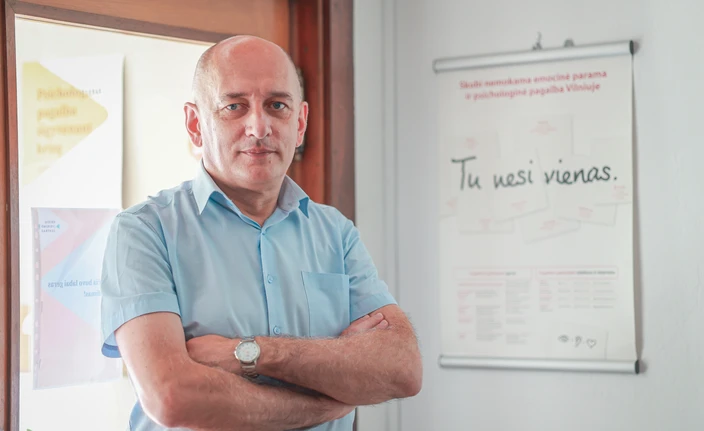The discussion of sex education in schools is a very current and frequently discussed topic dividing people into two camps. But the last government meeting, in October 2021, regarding this matter did not result in any changes. To better understand the issue we raise a question to the experts, students community and parents: what should sex education be about, and should it be introduced in schools?
Is Sex Education still far beyond the Horizon and why?
The discussion of sex education in schools is a very current and frequently discussed topic dividing people into two camps. But the last government meeting, in October 2021, regarding this matter did not result in any changes. To better understand the issue we raise a question to the experts, students community and parents: what should sex education be about, and should it be introduced in schools?
By Andrea Babíncová and Alena Donovalová
Whether there should be sex education in Slovak schools is quite a controversial topic that links many worries and biases to it. Despite frequent arguments, such as keeping sex education for the family, concerns about the rise of sexual activity among youth, or distrust of the curriculum, experts emphasize the importance of adding this subject to our schools. So what students and parents community thinks about this matter and is the coverage of this topic insufficient in biology?
Slovaks know better than WHO?
So, what does sex education currently look like in Slovak schools? Despite multiple studies, experts, and international bodies, such as WHO (World Health Organization) or other agencies of the United Nations agree on the importance of sex education, the school system in Slovakia does not cover this subject separately. The state leaves schools quite a free hand in choosing topics related to sex education that they will cover. Yet schools marginally mention these topics in ethical education or biology, but sex education is not present in that agenda.
In the curriculum of the seventh year of elementary school (second year in eight-year high schools), the subject of biology covers the human body. 1-2 lessons are devoted to human sexual anatomy and the functioning of the reproductive organs (including all information about STIs and other possible risks concerning sexuality). An open discussion about topics related to sex education, such as education about violence and boundaries, risks, or about sexual law or consent is completely left out. The events of rape are rarely taught. This topic is mentioned only after some outrageous event when it’s too late.

Psychologist Beáta Suriaková, who agreed to give us an expert opinion on sex education says that this matter is necessary to be taught in schools regardless of the age of the children.
“I think that sex education is necessary, whether in primary school or high school”, says Suriakova.
Yet she adds that sex education should not only be just about sex.
“Sex education should also cover the emotional side. Therefore, this subject is often called “the Science of Relationships”. It is very important for young people, considering that young people are generally very interested in getting to know people, forming relationships, and trying out new things – whether in the context of intimacy, sexuality, establishing relationships, or dating in general. Young people need to know how to identify what a healthy relationship is, to know how to say “no,” to recognize sexual or psychological abuse, or anything else”, Suriakova describes.
Voice of youth
Since students are often forgotten to include into discussions, we made a questionnaire to find out what they think about the matter affecting them directly.
We tried to make the survey as objective as possible, so the answers were given to us by students aged 15-20. Of the 79 respondents, 60% were women, 34% were men, and 4 didn’t choose any gender.
The topic of “sex” and everything connected to it is still often considered taboo. A lot of times, people feel shame when discussing such things, often referred to as something shameful, inappropriate, or wrong. Finding that quite interesting, we wanted to know how students perceive this topic.
We were pleasantly surprised that up to 38% of respondents answered that sex is an open topic at home and that they are not afraid to talk about it. Also, 65% of students said that this topic is as ordinary as all the others, so they don’t feel ashamed when talking about such things.
When we asked if they had ever encountered sex education in schools, almost 40% chose the answer “no”.
Fortunately, 60% of students had at least some experience with sex education in schools, so we asked them another question: in what form was sex education presented to them? More than half of the people chose an answer we expected the most – a small, brief lesson during biology or ethics education. The second most popular answer was “lectures,” which is undoubtedly a more effective form. The most favorable response would have been “a school subject.” However, only 3.5% of respondents had this answer.
Only 11% of students answered “no” when we asked if they would welcome an open discussion about this topic during classes. A high percentage of yes responses confirmed to us that sex education is important to students and they see the importance in it themselves.

Biology is not enough
According to an expert psychologist, the way of presenting sex education in biology class is only the surface of the big sea of knowledge that is never explored, thus left unknown, full of fears, dangers and misconceptions.
“Coverage of sexual education in biology is insufficient mainly because biology lacks the emotional and relational component. In addition, one of the lacks of biology is that it talks about model examples of how it looks and how people work, but it does not talk about the differences and the broadness of the norm. Therefore, many people may face prejudices, insecurities, fear, etc.”, Suriakova says.
Miss Suriakova also strongly believes that lack of educating youth about relationships results not only in tragedies as rapes, but in unhealthy generation in general.
“I also think that the absence of sexual education in society can result in a transfer of various pathological patterns in families where parents did not have such education”, Suriakova says.
“Internet knows it all?”
When we asked where students get information about sex education, most respondents indicated the internet option.
While it’s nice that students are more and more interested in this topic, the Internet might not be one of the best and most trusted sources, therefore schools have a chance to interfere in time, psychologist says.
“Prevention should work in a way to prevent risky behavior from occurring. If we began to talk about it only after the age of 15, it is possible that there would be people who have already had their first sexual experiences. Waiting there until 15 would be very risky, and it would not make sense”, expert says.
According to Suriakova, it is not only to start introducing this topic in early stages, but also adapt it to the age of students.
“In my opinion, it would be fine to start teaching this subject at the first level, but only about certain topics, for example, how to protect your privacy or respect the privacy of others. It is also important to teach children how to say that they are not comfortable with some behavior, whether touching, hugging or, in a worse case, sexual harassment and abuse, and how to tell their parents about it”, Suriakova adds.
But what do educators think about this?
Teachers opinion differs
We have also prepared a short questionnaire for ten high school professors. We wanted to find out what their view was on the application of sex education in schools and whether they would be in favor of introducing this subject.
When we asked if sex education is important, everyone answered unequivocally – yes. Similarly, they had positive answers when we asked about the introduction of this subject in schools. Also, almost all of them said that if they had the opportunity and the necessary education or course to teach this subject, they would teach it.
Next, we wondered if they considered the current teaching standards to be sufficient. Here we are presented with two types of answers. Eight respondents said “no” and two admitted that they “do not know what the current standards are”.
The last point of our questionnaire was perhaps the biggest problem: Why is sexuality education not taught in Slovak schools? Answers were also found containing a strong religious background. Other professors argued that all the necessary information is already in the subject of biology. Or that teaching this subject is politically impassable.
How to do it right
All of our respondents agreed that learning about sexual education and relationships in schools is vital for the youth’s future. But one question remains diverse: how to do it right?
Psychologist Maria Suriakova presents this opinion.
“The form of teaching sex education should be based on interactivity, discussions, on children coming up with some answers themselves. There is plenty of potential for using model situations presented to students, and they will create solutions in cooperation with an expert. It’s crucial not to use frightening examples, like showing students someone who had a child at a very young age and what it caused, or someone with an STI, etc.”
One of the misconceptions of teaching students about sex in schools is that it might increase sexual activity among youths. But Suriakova believes it depends solemnly on the way of presenting the subject.
“I think it depends on how sex education is taught. If children are listed what they can and cannot do and we give them instructions, it can spark curiosity that is natural in puberty. Whereas, if we lead young people to responsibility and safety, guide them on how to think about it, and make this education regular, just like studies from abroad show, it will lead to a more responsible sex life.”

This article is part of the International Journalism Lab initiated by Media4Change. The laboratory is part of the project “Digital MIL Lab in Youth Work”. The project is financed under the Erasmus+ program of the European Union.
The authors of the project articles do not coordinate the topics and content of the articles with the sponsors of the project.


